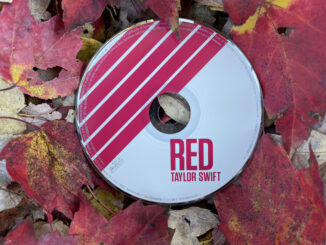By: Sam Fatula | A&E Editor
As much as people want to convince themselves that the music industry is based around the passion that an artist possesses for their craft, they all have to face the music at some point.
This same philosophy applies not only to fans who watched their favorite bands “go mainstream,” but also to the musicians who swore that they would never sell out.
The same pattern occurs more frequently as time progresses. Each generation witnesses artists make contractual agreements in the six-figure range to travel the world and record annual albums along the way. My nostalgic self still cringes every time I hear Fall Out Boy’s latest single “Centuries” played during commercial breaks in between NHL games, knowing that the driving factor of the song being played on TV was a hefty paycheck.
Part of me has the initial reaction to wipe their digital discography clean of my computer, never to return to that realm of my iTunes library. However, if a band constitutes playing music as a full-time job and observes competition similar to how a traditional nine to five businessman would, does that necessarily diminish their integrity as an artist, or does it provide evidence of striving for the proverbial American Dream in an alternative medium?
Perhaps there is a slight truth to both arguments. Let’s take Taylor Swift as an example. The country-turned-pop crossover takes the category of mainstream to another level. She fits the mold of what any aspiring pop star wants to be: young, attractive, relatable and ridiculously wealthy. All of her singles become branded into popular radio stations’ playlists on a near daily basis, and even if you doubt her talent, you still probably can’t get the “Shake it Off” hook out of your subconscious.
Does T-Swift have much substance when discussing her music? Not at all. Most of her career compiles of writing simple breakup songs that are accompanied by expensive production. It doesn’t take a rocket scientist to analyze “We are Never Ever Getting back Together,” but you cannot argue the amount of money that song made single-handedly. And because Swift enjoys writing songs like this and continues to make profits and sell out stadiums, she will take the risk of another bad relationship.
People that consider themselves a member of the indie community look at the resume of a Taylor Swift and see someone who has no appreciation for the value that music brings to a listener. Indie artists and audiences alike place an emphasis on vague lyrics and instrumentation that is rarely used as a form of expression. Money is clearly not at the forefront. An artist that clearly abides to this sort of code is Death Grips.
The industrial hip-hop duo of MC Ride and drummer Zach Hill have done just about everything possible to become certifiably blacklisted by every corporate record label in the United States solely for the purpose of artistic expression. The group has made a name for themselves for a number of reasons, ranging from their unusual choices of beats and hard to follow melodies, to using album covers as a canvas to show nude body parts. Every action they complete is done for themselves and they have shown no sympathy towards appreciative fans.
This kind of behavior has only gone so far for Death Grips, as they have been removed from big name record labels to being kicked out of tours from participating bands on numerous occasions. Without touring or an album to promote, a band can only survive so long, and recently Death Grips had to call it quits. As much as they personified rebellion, they could no longer sustain a voice no matter how many diehard fans attended their final shows.
These are two extreme cases of involvement, or lack thereof in the music industry, with each artist seeming to sacrifice something for ultimate satisfaction. For Taylor Swift, that is not being taken serious as a recording artist and viewed more as a walking billboard. Death Grips listened to no one but themselves and were driven from existence. Until musicians understand how to counterbalance songwriting and understanding the business of the industry, this will always be a yin-and-yang discussion.
It is difficult to find a band that is capable of managing both their original identity and contribute to the corporate media machine, although some bands are making an effort. A handful of groups in the indie pop genre come to mind that are not exactly categorized as commercial, but are gaining groud throughout mainstream media. Vampire Weekend, Mumford and Sons, Death Cab for Cutie and even Arcade Fire have broken the mold for indie artists to decline larger record deal opportunities. These outfits understand the potential success that they can have on a larger scale, and have garnered a much bigger fanbase in the process.
The question still remains whether these up-and-coming indie bands will go further into the deep end towards selling out to their newly acquired labels. Some fans are already concerned that Mumford’s and Arcade Fire’s recent jump to stardom. The bands’ recent national tours have gotten much more elaborate in design, especially Arcade Fire’s recent Reflektor world tour. The amount of things happening on the stage practically distracted from the entire performance, which makes you wonder if their major concern is putting on a quality musical show.
Going mainstream doesn’t always have to connotate with selling out as long as the brand you represent is true to the lyrics in the tracks.




